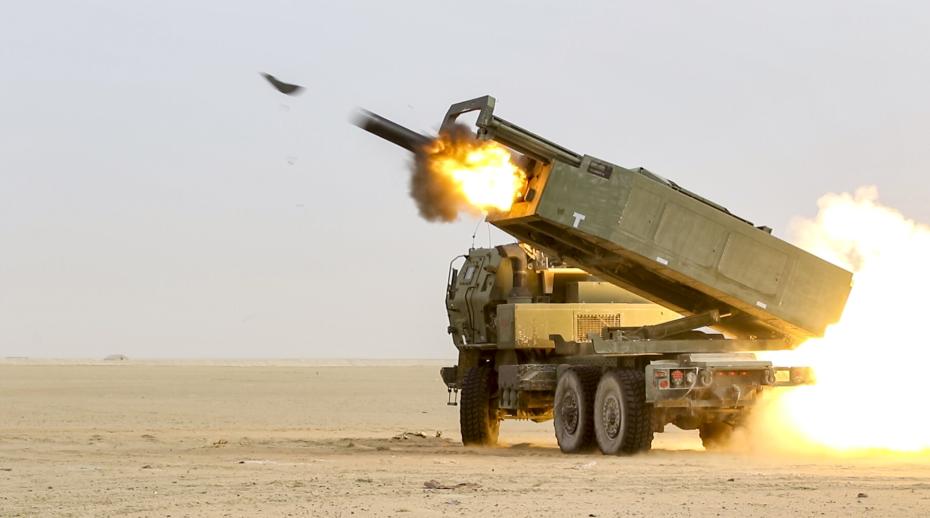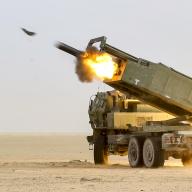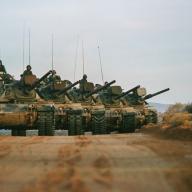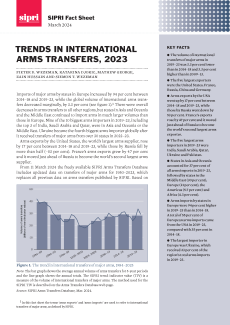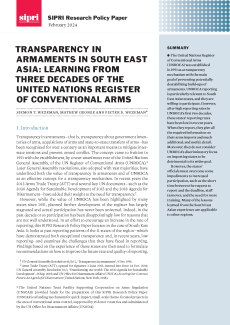International arms transfers
SIPRI conducts research on arms transfers to or from particular regions, subregions, states or non-state actors aimed at both increasing the fundamental understanding of the impact of arms transfers and to support policymaking and policy implementation.
An important aim of SIPRI's research is to contribute to greater transparency as a means of ensuring responsible international arms transfers, thereby helping to prevent violent conflict, alleviate tensions, warn about potentially destabilizing arms accumulations and counter the misallocation of limited resources. We investigate international arms transfers in relation to international security and national foreign and defence policies; inter-state relations; states’ compliance with international commitments such as arms embargoes or the Arms Trade Treaty and national legislation on international arms transfers; and we assess arms procurement against declared defence and security policies.
The SIPRI Arms Transfers Database is a core element of this work. Freely accessible online, it aims to provide valid, reliable and consistent data about the volume and types of major weapons transferred internationally since 1950 and provides tools to identify trends and patterns in international arms transfers at the global, regional and national levels, and relationships between arms importers and exporters.
Click here to explore the interactive map showing changes in arms imports by European states between 2014–18 and 2019–23.
